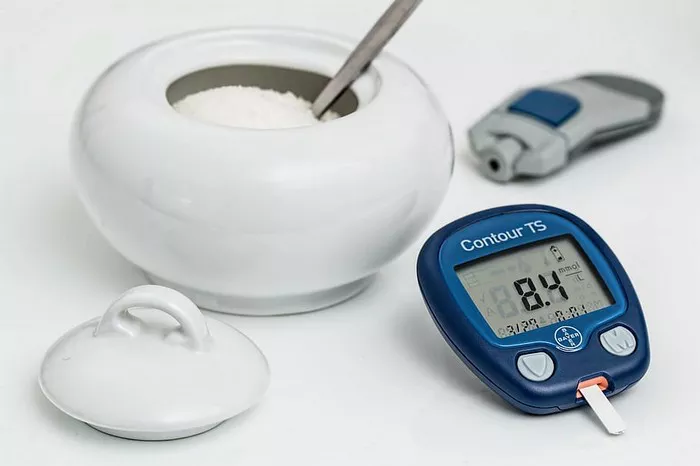High blood sugar, also known as hyperglycemia, is a condition characterized by an excess of glucose in the bloodstream. While it can occur in anyone, it is particularly concerning for individuals with diabetes, as prolonged periods of elevated blood sugar levels can lead to serious health complications. Understanding the implications of high blood sugar and adopting appropriate dietary strategies are crucial steps in managing this condition effectively.
Explanation of High Blood Sugar
High blood sugar occurs when the body either fails to produce enough insulin or becomes resistant to its effects. Insulin is a hormone produced by the pancreas that helps regulate blood sugar levels by facilitating the uptake of glucose into cells for energy production. When insulin function is impaired, glucose remains in the bloodstream, causing blood sugar levels to rise.
For individuals with diabetes, high blood sugar can have serious implications for health. Prolonged hyperglycemia can damage blood vessels and organs, leading to complications such as cardiovascular disease, kidney damage, nerve damage, and vision problems. Additionally, it can exacerbate symptoms of diabetes and increase the risk of diabetic emergencies such as ketoacidosis and hyperosmolar hyperglycemic state.
Dietary Recommendations
Diet plays a critical role in managing blood sugar levels. By making informed food choices and adopting healthy eating habits, individuals can help regulate their blood sugar and reduce the risk of complications associated with high blood sugar. Here are some dietary recommendations to consider:
Incorporate Blood Sugar-Regulating Foods: Certain foods have been shown to help lower blood sugar levels. Incorporating foods such as broccoli, seafood, pumpkin, nuts, and seeds into your diet can provide essential nutrients and support blood sugar control.
Follow a Balanced Diet: Aim to balance your meals with a combination of carbohydrates, proteins, and fats. Choose complex carbohydrates such as whole grains, fruits, and vegetables, which are digested more slowly and have a gentler impact on blood sugar levels.
Practice Portion Control: Monitoring portion sizes is essential for managing blood sugar. Pay attention to serving sizes and avoid overeating, especially foods high in carbohydrates, which can cause blood sugar spikes.
Opt for Healthy Cooking Methods: Use cooking methods that preserve the nutritional value of food and minimize the addition of excessive calories or sugar. Methods such as steaming, baking, grilling, and sautéing with minimal oil are recommended.
Increase Fiber Intake: Fiber-rich foods can help stabilize blood sugar levels by slowing down the absorption of glucose. Include sources of soluble fiber such as oats, legumes, fruits, and vegetables in your diet to promote satiety and improve glycemic control.
Consider the Glycemic Index: The glycemic index (GI) ranks carbohydrates based on their effect on blood sugar levels. Choosing foods with a lower GI can help prevent blood sugar spikes and promote better glucose management.
Incorporate Healthy Fats: Healthy fats, such as those found in avocados, nuts, seeds, and olive oil, can help improve insulin sensitivity and support overall blood sugar control. Include these fats in moderation as part of a balanced diet.
Avoid High-Sugar and Refined Carbohydrates: Limit your intake of foods and beverages that are high in added sugars and refined carbohydrates, such as sugary drinks, sweets, pastries, and white bread. These foods can cause rapid spikes in blood sugar levels and contribute to insulin resistance.
Meal Planning Tips
Effective meal planning is essential for maintaining stable blood sugar levels throughout the day. Here are some tips to help you plan balanced meals:
Plan Ahead: Take the time to plan your meals and snacks in advance, considering your nutritional needs and preferences. Having a plan in place can help you make healthier choices and avoid impulsive eating.
Include a Variety of Foods: Aim for a diverse range of foods from all food groups, including fruits, vegetables, whole grains, lean proteins, and healthy fats. This ensures that you get a wide range of nutrients and helps keep meals interesting and satisfying.
Space Out Carbohydrates: Distribute carbohydrates evenly throughout the day to prevent large spikes or drops in blood sugar levels. Pair carbohydrates with protein and healthy fats to slow down their digestion and minimize their impact on blood sugar.
Monitor Portion Sizes: Use measuring cups, spoons, or visual cues to control portion sizes and avoid overeating. Be mindful of serving sizes, especially when it comes to carbohydrate-rich foods.
Include Protein with Every Meal: Protein helps stabilize blood sugar levels and promotes feelings of fullness and satiety. Include a source of lean protein, such as poultry, fish, tofu, eggs, or legumes, with each meal to support blood sugar control.
Choose Whole Foods: Prioritize whole, minimally processed foods over highly processed and packaged options. Whole foods tend to be higher in nutrients and fiber and have a gentler effect on blood sugar levels.
Monitoring Blood Sugar
Regular monitoring of blood sugar levels is essential for individuals with diabetes to track their progress and make adjustments to their diet and medication as needed. Use a blood glucose monitor to check your blood sugar levels regularly, especially before and after meals, exercise, and bedtime. Keep a log of your readings to identify patterns and trends over time, and share this information with your healthcare provider.
Consultation with Healthcare Professionals
While adopting a healthy diet is an important aspect of managing blood sugar, it’s essential to work with healthcare professionals, such as registered dietitians, to develop a personalized nutrition plan tailored to your individual needs and goals. Your healthcare team can provide guidance, support, and ongoing monitoring to help you achieve and maintain optimal blood sugar control.
Conclusion
In conclusion, managing high blood sugar requires a multifaceted approach that includes dietary modifications, portion control, healthy lifestyle habits, and regular monitoring. By incorporating blood sugar-regulating foods, balancing meals, practicing portion control, and seeking guidance from healthcare professionals, individuals can effectively manage their blood sugar levels and reduce the risk of complications associated with diabetes.



























